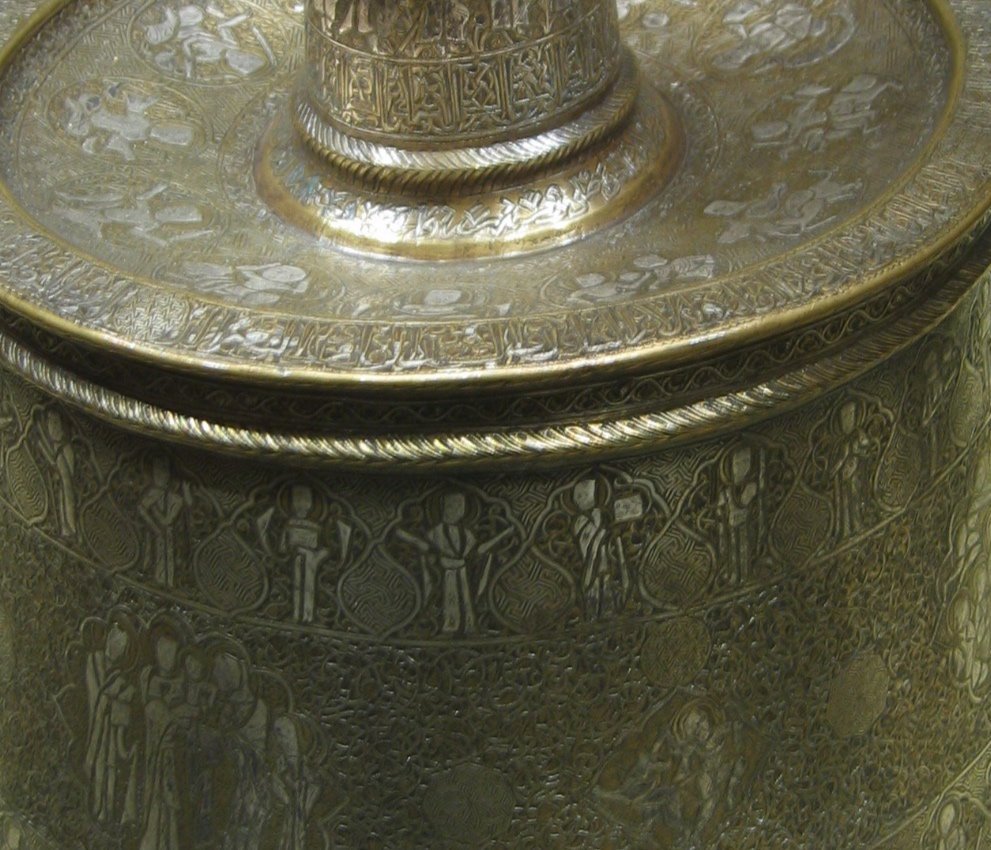The Holy Spirit
The Goodness of God: The Holy Spirit
Photograph: Sunlight through aging leaf. Photo credit: Scott Robinson, Creative Commons; cropped.
Introduction
This page on the Holy Spirit presents messages and reflections on the Spirit’s gifts in reproducing the ministry of Jesus, the Spirit’s relation to Jesus, the Spirit’s relationship with our human personhood and, ultimately, the Spirit and the Father-Son relation.
Messages and Resources on the Holy Spirit
A collection of messages and other resources that focus on each gift (charism) of the Holy Spirit: Encouragement & Exhortation; Evangelism; Giving; Healing; Leading & Administering; Mercy; Pastoring & Teaching; Prophecy & Words of Knowledge; Tongues & Interpretation. Each gift is anchored in the character and activity of Jesus of Nazareth. Resources also include at least one message about how a person experiences the gift when she is living it out, focusing on one’s internal experience, motivations, and desires. Other resources include: workshop material and training modules; biblical exposition; recommended next steps.
The Holy Spirit: An Introduction, Three Aspects of Salvation
Text and slides of a message on Jesus and the Spirit. The Son and Spirit are involved in solving three interrelated problems: a problem related to God, a problem related to ourselves, and a problem related to the demonic. This message seeks to integrate them.
The Holy Spirit: The Spirit of Power and the Demons of Old
Slides of a presentation on a broad biblical theme and many texts. The message explains the Spirit's role in deliverance ministry, and our participation in it.
The Holy Spirit: The Spirit of Truth and Our Enemy the Liar
Slides of a presentation on Matthew 3:13 - 4:11. This message explains the Spirit's role in truth-telling and resisting temptation.
Weird Coincidences, Supernatural Events, Funny Feelings - Is That You God?
An evangelistic message which interprets certain personal experiences as God's nudging towards Jesus; the Spirit's activity is implicit
Understanding the Father, Son, and Holy Spirit in Action
A devotional reflection on Matthew 3:13 - 4:11, part of a longer series of reflections in Matthew's Gospel
Knowing God from the Inside by the Spirit
Text of a message on John 14:8 - 21 exploring how salvation expresses union with God through the humanity of Jesus
A thematic study of Luke - Acts and small group leader notes.
Text and slides to a message on a thematic study of Luke - Acts focused on the Holy Spirit. Every time the Spirit is mentioned, Luke connects the Spirit to God’s speech or human speech.
The Fulfillment of Israel’s Scriptures
A thematic study of Luke - Acts, relating the Spirit and speech.
The Question of Tongues and the Reversal of Babel
A thematic study of Luke - Acts, relating the Spirit and speech.
Women Restored, Women Restoring
A thematic study of Luke - Acts, relating the Spirit and women.
Women Speaking Authoritatively in the Worship Service in 1 Corinthians 11
An in-depth small group discussion demonstrating an empowering view of women - and dishonored women in particular - being involved in speaking leadership.
Women and Speech in 1 Corinthians 11 and 14
A thorough comparison of views between both 11:2 - 16 and 14:34 - 36, which must be interpreted together.
The Gift of Prophecy in 1 Corinthians 14: Words of Hope from Your Mouth
Text of a message exploring 1 Corinthians 14.
Ephesians 4:11: An Evaluation of the 'Five-Fold Ministry' and 'the Charismatic Restoration'
An essay, thoroughly exploring the roles of apostle, prophet, and pastor.
An argument for women as elders and leaders based on textual, literary, and historical aspects of the text of 1 Timothy.
Slides of a presentation given to the 2022 Reconstruction class. This material explores the biblical theme of human being and human becoming. God created us with good desires for more goodness and beauty, as well as the freedom to determine the direction of our love as constituting our human becoming. The biblical motif of meeting God on mountains is important. We glance at various Christian leaders, but do a deeper dive into Gregory of Nyssa’s Life of Moses, in his interpretation of Moses meeting God on Mount Sinai, and returning with shining face.
Slides to a presentation given to the 2022 Reconstruction class. It covers the early Christian understanding of human being, human becoming, and how we co-create with God our human desires and human nature. The Holy Spirit is portrayed in Scripture as a purifying fire. If humans direct their loves against the ordering love of God, and thus refuse Jesus as their healing, the Holy Spirit will feel like torment. If you enjoyed this video, see the full page of resources at God’s Goodness in the Theme of Fire.
Athanasius on the Holy Spirit, Conversion, and Sanctification, Part 1
Athanasius of Alexandria is regarded as the fountainhead of all theology because of his role in the theological debates about the identity of the Son of God, but his work on the Spirit of God is equally important; this paper explores his writings and engages with secondary sources.
Athanasius on the Holy Spirit, Conversion, and Sanctification, Part 2
A paper in progress. This paper continues Part 1, and engages with Athanasius’ First and Second Discourses Against the Arians, Festal Letters after 342 AD, Letters to Serapion on the Holy Spirit, and Life of Anthony.
Other Resources on the Holy Spirit
Joe Carter, Study: Majority of Self-Identified Christians Don’t Believe the Holy Spirit is Real. The Gospel Coalition, Sep 18, 2021. This is related to the widespread Protestant belief in Penal Substitutionary Atonement, which features a retributive God the Father pouring out wrath on a passive Jesus at the cross. In this transactional understanding, the Holy Spirit is negligible, which helps explain why a majority of self-identified Christians don’t believe the Holy Spirit is real.
Church: Topics:
This section on the Church is organized from formal theology to practical expression. Holy Spirit includes messages and reflections on the Holy Spirit, including the Spirit’s gifts. Pentecost examines Jesus redeeming not only individuals but languages, relations, and cultures, which carries political implications as well. Church and Language highlights the nature of human language, including its political uses, and Christian engagement. Church and Mission spotlights the history of Christian mission as well as resources for today’s Christian mission movement. Church and Women presents resources supporting women in all levels of church leadership. Church and Empire explores the positive and negative patterns of Christians and political power. Myth of Christian Ignorance confronts the Western accusation that Christian faith stunted the growth of Western culture and institutions. Church Unity maintains resources related to the major issues which have concerned the Assyrian Church of the East, the Oriental Orthodox, the Catholic-Orthodox split, and the Protestant split. Church and Friendship focuses on practical expressions of community and reflects on the conditions for and against friendship, largely in the U.S.
God’s Goodness: Topics:
Here’s how to navigate this section on God’s Goodness. The Introduction focuses on the biblical presentation of Father, Son, and Holy Spirit; and the implications. Human Becoming spotlights creation and humanity, especially how God made humans as human beings and human becomings. Israel tackles big questions about why God needed an Israel, why God took human life to protect Israel’s vocation. Jesus explains God revealing Himself fully in Jesus, and addresses Protestant notions of limited atonement and double predestination as incompatible with God’s Triune character of love. Holy Spirit explores the divine person of the Spirit and the gifts of the Spirit. Human Destiny explains how desire and development are part of the outworking of human becoming, destiny, and God’s goodness. Divine Fire explains why the portrayal of divine fire in Scripture is always God’s call to participate in refinement and purification. Human Evil explains why God is good by solving the problem of human evil in a loving way. Human Suffering explains why God is good because He suffers with us since the fall, and heals the deepest suffering behind the suffering.







































